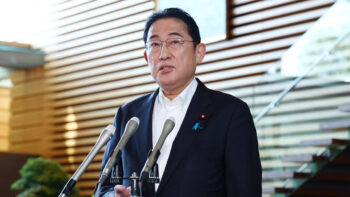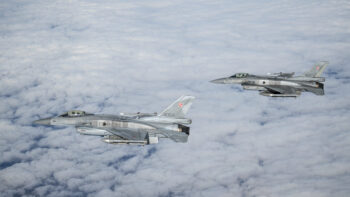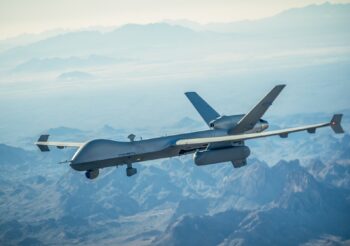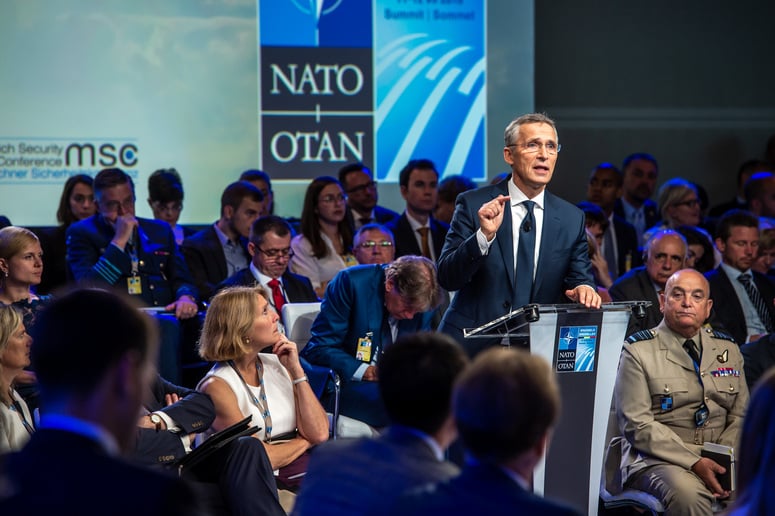
NATO Secretary General Jens Stoltenberg at the Security Conference: NATO Engages
WASHINGTON: NATO Secretary-General Jens Stoltenberg called for sweeping changes in how the alliance pays for troop deployments and protects its technology base against foreign investment today, setting the stage for the group’s first major meeting of 2021.
Stoltenberg announced a new Defense Innovation Initiative that would “promote interoperability and boost transatlantic cooperation on defense innovation,” while also calling for a closer review of potential Chinese and Russian investments in critical sectors of the defense industry, in a briefing with reporters before the start of a two-day NATO defense minister conference in Brussels,
It’s not yet clear how fleshed out these ideas are, but the agenda Stoltenberg presented suggests he’s taking some of the sharp criticisms thrown at the alliance by former president Trump and previous administrations. The Biden administration has signaled it also expects NATO to step up, albeit in more diplomatic terms.
Taking a page from work being done at the Pentagon and State Department over the past several years to protect critical industries from Chinese investment, Stoltenberg called for an “annual review of vulnerabilities in alliance critical infrastructure and technologies, including those stemming from foreign ownership and influence.”
That effort could be a transatlantic cousin to the Pentagon’s work to stamp out potential Chinese funding pumped into the US technology sector, specifically in companies working with US defense firms.
The work received a stamp of approval from the Biden team last week when Ely Ratner, a top aide to Defense Secretary Lloyd Austin and tapped to lead DoD’s new China Task Force, said the issue of technology competition in the defense sector “is of increasing importance in the US-China relationship [and] a huge priority for the administration.”
Stoltenberg also prioritized a new effort to “preserve our technological edge,” by establishing a NATO Defense Innovation Initiative “to promote interoperability and boost transatlantic cooperation on defense innovation.”
With some of the most important innovations in AI, unmanned and autonomous technologies and computing coming from small commercial firms, Stoltenberg clearly signaled that he wants NATO to work with these smaller companies.
“I think NATO can play a role in helping startups and work with the private sector, as we look to further strengthen our investments and the development of these new technologies,” he said.
With NATO HQ putting up more money for innovation, it can steer those investments toward technologies that the entire alliance can use, as opposed to countries going off in their own direction. “We need to prevent a technological gap between allies,” Stoltenberg said. “I welcome of course that allies are investing more in new technologies, but we need to make sure that when different allies have more and more advanced capabilities,” they can be integrated across the international force.
In his time as Secretary General, Stoltenberg endured several Trump tantrums over spending and burden-sharing, most significantly the former president’s performance at the 2018 NATO summit when he threw the event into chaos by demanding allies immediately increase defense spending.
Those were hard lessons to absorb, but they underscored a simmering American frustration with the slow pace of European reform. They appear to be lessons that Stoltenberg is trying to mold into change, however.
He said he expects nine of NATO’s 30 members to hit the benchmark of putting 2% of their GDP toward their own defense this year, marking the seventh consecutive year that allied defense budgets increase overall, a trend that obviously precedes Trump’s tantrums.
The issue of burden-sharing hasn’t been just an American complaint, particularly when it comes to the new battlegroups NATO has established in Estonia, Latvia and Lithuania — along with deployments to Afghanistan and Iraq — which have fallen mostly to a handful of larger countries to man, equip and fund.
Those deployments are funded by the countries providing troops, something Stoltenberg wants to change.
Calling for NATO to begin funding these missions, as opposed to individual countries eating the costs, is a way to spread the burden-sharing across the alliance, Stoltenberg said, while also encouraging smaller countries to supply troops.
Suggesting the last administration’s early failure to affirm the US would abide by Article 5 — the collective self-defense mechanism that is the basic underpinning of the entire alliance — is a wound that hasn’t fully healed, Stoltenberg suggested that sharing these burdens “will demonstrate a commitment to Article 5, to deterrence and defense, which will enhance our political unity, because our political unity is based on our commitment to defend and protect each other.”
Asked specifically about the legacy of the Trump years on the alliance, Stoltenberg suggested 2021 and the Biden administration represents a new chance for NATO, and one he’s looking to take advantage of.
“It’s no secret that over the last four years we had some difficult discussions inside NATO,” he said. “But now we look to the future, and the future is that we now have an administration in the United States which is strongly committed to the transatlantic bond, to NATO, Europe and North America working together. I welcome that. And I have spoken with President Biden twice since the elections and in both those conversations, he has been very strong, very clear on the importance of rebuilding alliances, and further strengthen NATO.”
Preliminary discussions lead Boeing to offer CH-47F Chinook to Poland
It remains to be seen how many aircraft Warsaw will commit to, should it go ahead with an order of the US Army aircraft or if a wider industry competition is to begin near term.
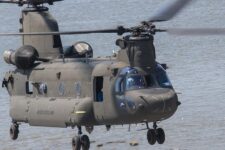


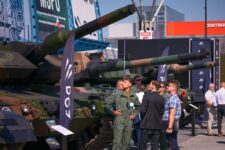

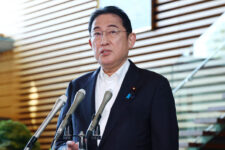
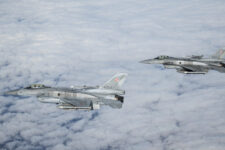




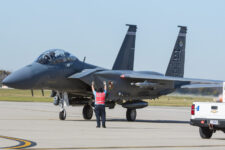
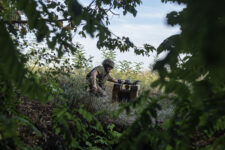
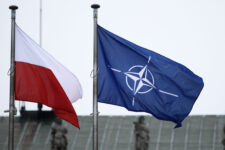
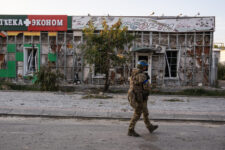

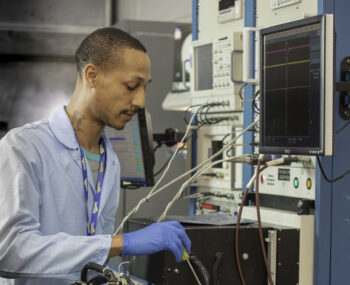
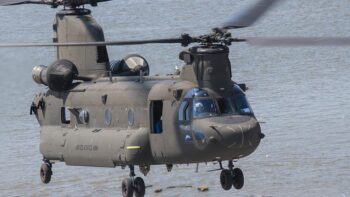

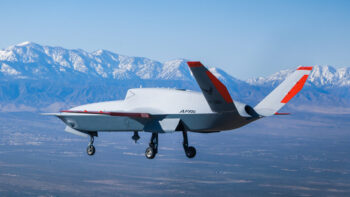
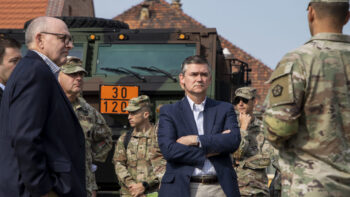
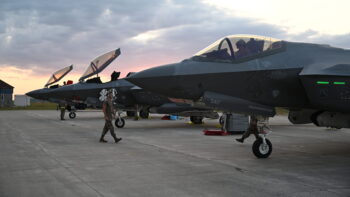
![Multifunction Infographic_22-071[1]](https://breakingdefense.com/wp-content/uploads/sites/3/2023/09/Multifunction-Infographic_22-0711-350x263.png)
